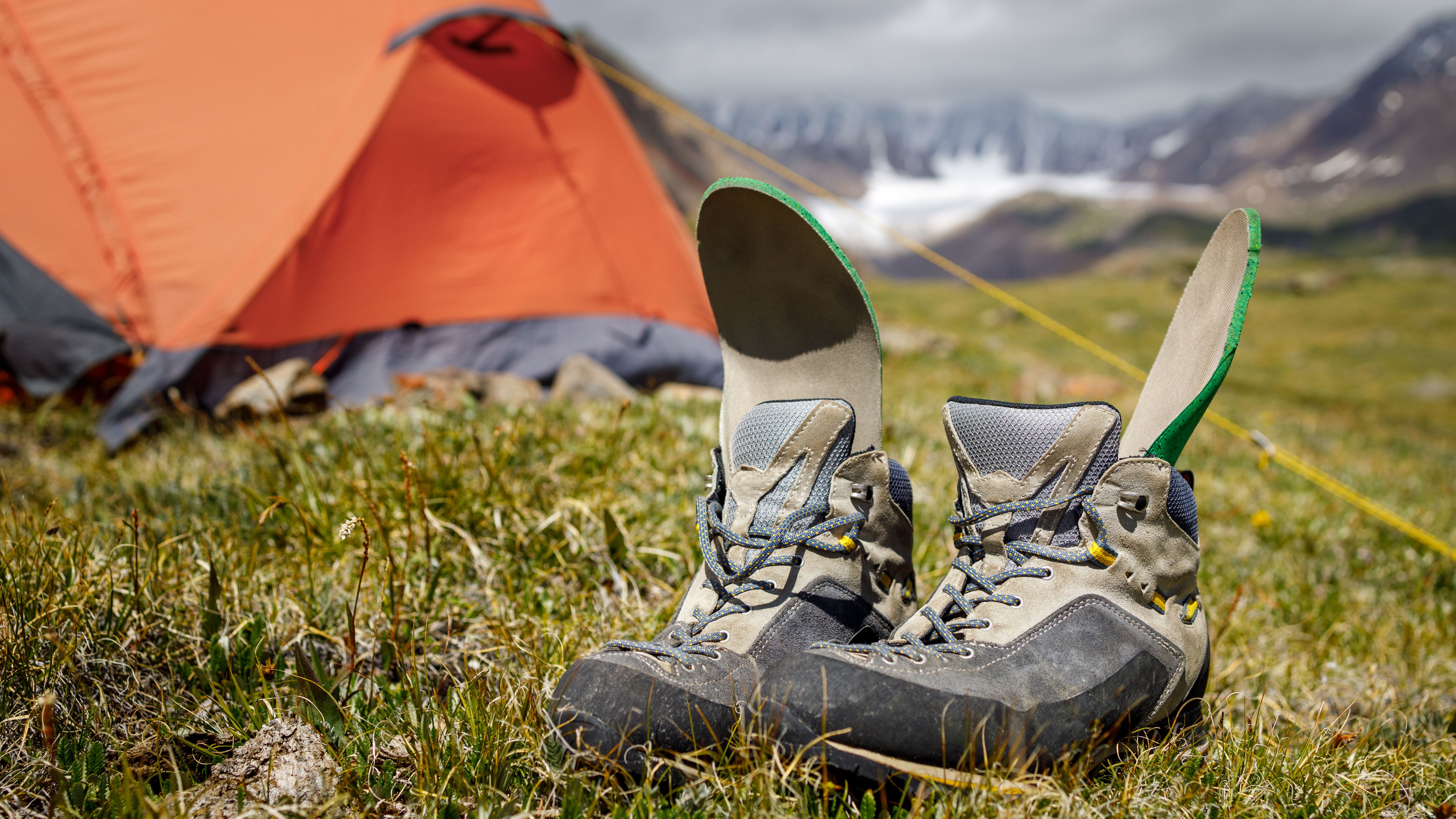Yes, hiking can help you lose weight by burning calories and boosting metabolism. Regular hiking can be an effective way to shed pounds and improve overall fitness.
It is a low-impact aerobic exercise that engages multiple muscle groups and challenges the cardiovascular system, leading to calorie burning and fat loss. Additionally, hiking provides an opportunity to connect with nature, relieve stress, and improve mental well-being. So lace up your hiking boots and hit the trails to kickstart your weight loss journey.

Credit: www.cnn.com
The Science Behind Weight Loss And Hiking
Will Hiking Help Me Lose Weight?
Hiking is a popular outdoor activity that offers numerous health benefits. Not only does it provide a chance to immerse oneself in nature and enjoy breathtaking views, but it can also contribute to weight loss. The combination of physical exertion and being surrounded by nature makes hiking an excellent choice for those looking to shed a few pounds.
In this section, we will delve into the science behind weight loss and hiking, exploring how hiking affects weight loss, the calorie-burning potential of hiking, and its impact on metabolism and fat loss.
How Does Hiking Affect Weight Loss?
Hiking, when combined with a balanced diet and regular exercise, can contribute to weight loss in several ways:
- Increased calorie expenditure: Hiking involves continuous movement, which increases energy expenditure and helps burn calories. The longer and more challenging the hike, the more calories you will burn. On average, hiking can burn between 400 to 700 calories per hour, depending on various factors such as your body weight, terrain, and hiking speed.
- Engages multiple muscle groups: Hiking is a whole-body workout that engages multiple muscle groups such as the legs, core, and arms. As you navigate different terrains and inclines, your muscles work harder, leading to increased strength, endurance, and calorie burning.
- Boosts cardiovascular health: Hiking is a cardiovascular exercise that elevates your heart rate, improving your cardiovascular health and increasing the efficiency of your heart and lungs. Regular cardiovascular exercise helps improve overall fitness, burn calories, and contribute to weight loss.
- Reduces stress and promotes mental well-being: Engaging in outdoor activities, such as hiking, has been found to reduce stress levels and improve mental well-being. Lower stress levels can contribute to a healthier lifestyle, better sleep patterns, and reduced emotional eating, all of which can aid in weight loss.
Understanding The Calorie-Burning Potential Of Hiking:
To better understand the calorie-burning potential of hiking, it’s essential to consider various factors that can influence the number of calories burned:
- Body weight: Heavier individuals tend to burn more calories during physical activities, including hiking, as their bodies require more energy to perform the same movements.
- Terrain and incline: Hiking on hilly or uneven terrains requires more effort and utilizes additional muscle groups, leading to higher calorie burn compared to walking on flat surfaces.
- Hiking speed: The intensity of your hike also affects the number of calories burned. Walking at a brisk pace or incorporating intervals of jogging will increase your heart rate and calorie burn.
Examining The Impact On Metabolism And Fat Loss:
Hiking can have a positive impact on metabolism and fat loss, contributing to weight loss in the long run. Here’s how hiking influences these factors:
- Increased metabolism: Engaging in physical activities, such as hiking, can boost your metabolism. As you challenge your body during a hike, your metabolism increases to meet the energy demands. This boosted metabolism can lead to continued calorie burn even after completing the hike.
- Fat burning: Hiking primarily relies on aerobic energy systems, using fat stores as a source of fuel. Regular hiking can help promote fat loss, especially when combined with a balanced diet and other forms of exercise.
- Improved body composition: Hiking can help improve body composition by reducing body fat and increasing lean muscle mass. Combining regular hiking with strength training exercises can yield even better results in terms of weight loss and overall body composition.
Hiking offers a holistic approach to weight loss by combining physical activity, nature immersion, stress reduction, and cardiovascular benefits. By understanding the calorie-burning potential of hiking and its impact on metabolism and fat loss, you can take advantage of this enjoyable outdoor activity to support your weight loss goals.
So, if you’re looking for a fun and effective way to shed those extra pounds, hit the trails and embark on a memorable hiking adventure.
Benefits Of Hiking For Weight Loss
Hiking As A Low-Impact Exercise Alternative
If you’re looking for an effective way to shed those extra pounds, hiking can be a fantastic choice. Not only does it offer breathtaking views and a chance to connect with nature, but it also provides numerous benefits for weight loss.
One of the key advantages of hiking is its low-impact nature, making it suitable for people of different fitness levels and ages.
- Hiking puts less stress on your joints compared to high-impact exercises like running, decreasing the risk of injuries.
- The varied terrain of hiking trails engages different muscle groups, promoting overall body strength and toning.
- Walking uphill during a hike challenges your leg muscles and helps to build bone density.
- Hiking is a weight-bearing exercise that burns calories without putting excessive strain on your body.
Building Cardiovascular Endurance Through Hiking
It’s no secret that cardiovascular exercise is essential for weight loss, and hiking is an excellent way to improve your heart health and endurance.
- Hiking at a brisk pace elevates your heart rate, promoting increased blood flow and oxygen delivery to your muscles.
- The longer durations of hiking sessions enhance your cardiovascular endurance over time.
- Climbing steep trails during a hike challenges your heart and lungs, allowing you to build stamina and burn calories simultaneously.
Strengthening And Toning Muscles While Hiking
Apart from being a great cardiovascular workout, hiking also helps to strengthen and tone your muscles.
- Uphill hikes engage your quadriceps, hamstrings, and glutes, helping to build lower body strength.
- Descending on uneven terrain requires your leg muscles to stabilize your body, contributing to greater muscle tone.
- Carrying a backpack while hiking adds resistance, further enhancing muscle engagement and providing an additional workout for your upper body.
Remember, to achieve significant weight loss through hiking, it’s important to maintain a consistent routine and gradually increase the intensity and duration of your hikes over time. Combine hiking with a balanced diet, and you’ll be well on your way to shedding those extra pounds while enjoying the great outdoors.
Tips For Maximizing Weight Loss Through Hiking
Hiking is not only a great way to connect with nature and enjoy breathtaking views, but it can also be an effective tool for losing weight. By incorporating certain strategies into your hiking routine, you can maximize the calorie-burning potential and make the most out of your weight loss goals.
Here are some tips to help you achieve that:
Choosing The Right Intensity And Duration For Weight Loss Goals
- Opt for longer hikes: Aim for hikes that last at least 2 hours or more to increase calorie expenditure and promote weight loss.
- Increase intensity: Incorporate challenging terrains and inclines to make the hike more physically demanding, which can result in more calories burned.
- Use a heart rate monitor: Keep track of your heart rate during hikes and aim to maintain a level that is within your target heart rate zone for weight loss. This zone is typically around 60-75% of your maximum heart rate.
- Gradually increase intensity: Start with moderate intensity hikes and gradually work your way up to more challenging trails as your fitness level improves. This will help prevent injuries and ensure long-term sustainability.
Incorporating Interval Training And Incline Variations
- Interval training: Mix periods of high-intensity hiking with periods of moderate intensity or rest. This can be done by picking up the pace for a certain distance or time period, then slowing down to recover before repeating. Interval training can boost your metabolism and increase calorie burn.
- Incline variations: Incorporate uphill hikes or add incline intervals during your hike to engage more muscle groups and increase energy expenditure. Uphill hiking can burn more calories than flat terrain hiking, making it an excellent way to intensify your workout and shed pounds.
- Descending with caution: Don’t forget the descent! Descending on steep slopes can be taxing on your joints, so make sure to use caution and maintain good form to prevent injuries.
Nutrition Tips To Support Weight Loss During Hiking
- Stay hydrated: Drink plenty of water before, during, and after your hike to stay hydrated and support your body’s fat-burning processes. Carry a reusable water bottle and take sips at regular intervals.
- Pack healthy snacks: Fuel your body with nutrient-dense snacks that are low in calories but high in energy. Opt for items like trail mix, dried fruits, nuts, granola bars, or energy gels to sustain your energy levels during longer hikes.
- Prioritize protein: Include protein-rich foods or snacks in your hiking pack, such as jerky, protein bars, or nut butter, to support muscle recovery and keep you feeling full for longer.
- Be mindful of portion sizes: It’s important to keep track of your portion sizes, even when you’re out hiking. While it’s easy to indulge in high-calorie treats after a demanding hike, be mindful of your overall calorie intake and choose healthier options whenever possible.
By implementing these tips into your hiking routine, you’ll not only enjoy the physical and mental benefits of being immersed in nature but also make significant strides towards achieving your weight loss goals. Remember to listen to your body, stay consistent, and enjoy the journey towards a healthier and fitter you.
Conclusion
Incorporating hiking into your weight loss journey can be a highly effective strategy. By engaging in this outdoor activity, you are not only burning calories but also improving cardiovascular health and building muscle strength. Hiking offers a versatile and accessible option for people of all fitness levels, allowing you to challenge yourself and progress gradually.
The varied terrain and elevation changes can engage different muscles and keep you motivated. Additionally, spending time in nature can have numerous mental and emotional benefits, reducing stress and boosting overall well-being. To optimize weight loss, ensure you maintain a consistent hiking routine and combine it with a balanced diet.
Remember to consult with a healthcare professional before starting any new exercise program. So, lace up your hiking boots and hit the trails – both your body and mind will thank you!




